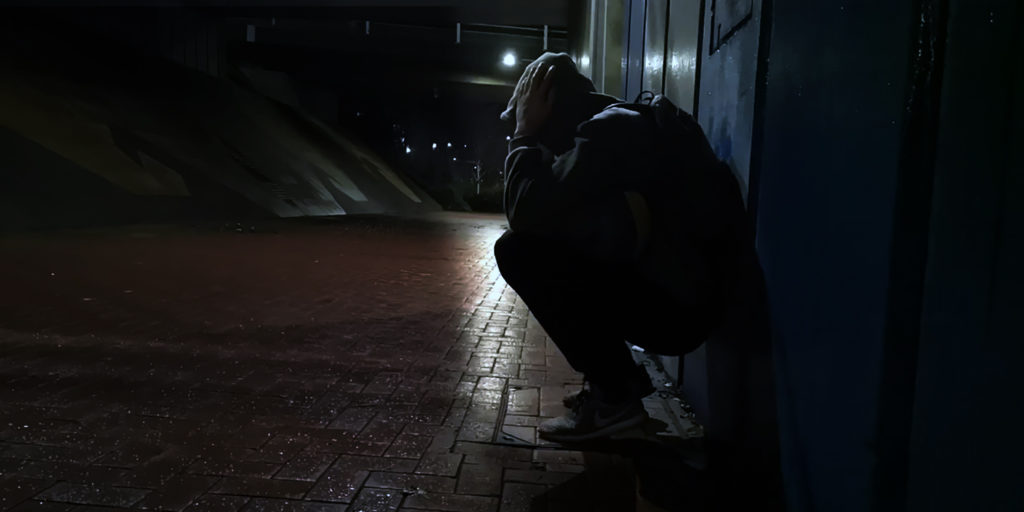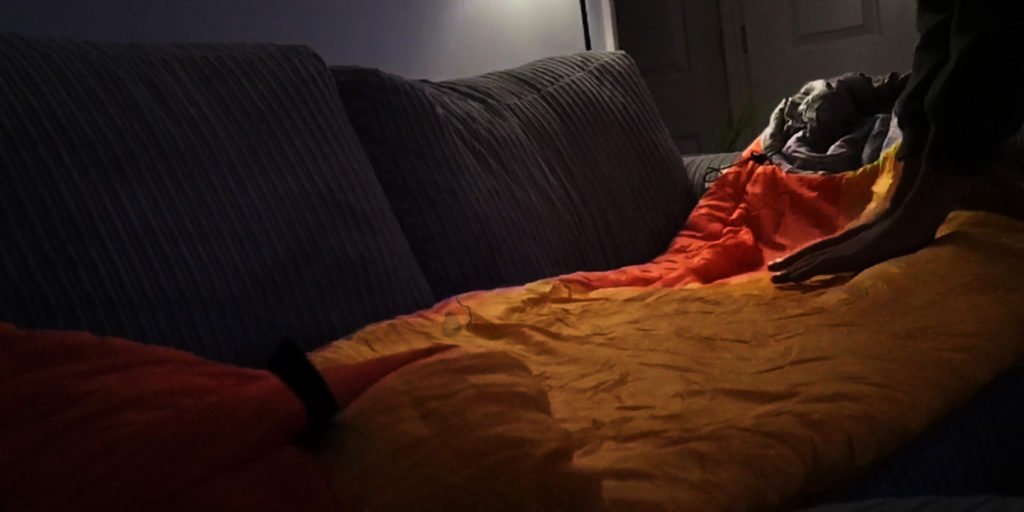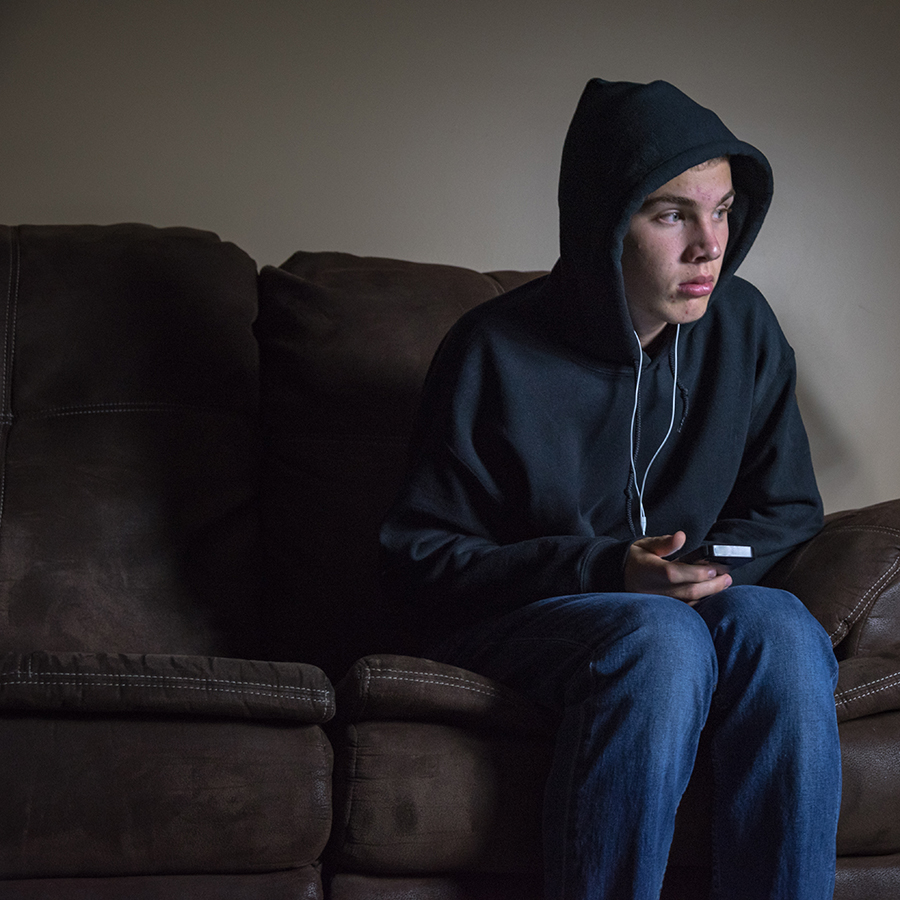Homelessness is not simply sleeping on the streets, but the restrictions of the pandemic have brought to the surface many people who now desperately need help finding somewhere to call home

The pandemic has instilled fear throughout the country with strict instruction to stay home and save lives. But for too many, staying home may not be safe or even an option. With household restrictions, they resort to homelessness.
One young man, for whom this was reality, told homeless charity Llamau, “What scared me the most was knowing that the world was being broken by this nasty virus, and I was completely alone.”
With increased pressure on households, families and finances, Welsh government funding has helped to house most known homeless people during the pandemic, ensuring no-one sleeps rough. However, therein lies an issue: the word known.
Numbers aren’t everything
The latest official count by housing charity Shelter implies a few hundred thousand people in Britain are homeless: 280,000 of those in England. For Wales, the national statistics show nearly 10,000 were threatened with homelessness. In Cardiff alone, the number of people facing this is over 2,000.
Though these figures are shocking, they are under-representative of the true scale. Research published by UK charity Crisis estimated 62 percent of homeless individuals and families are unaccounted for in official statistics.
This is known as hidden homelessness and most commonly describes someone who is homeless but finds a temporary, informal solution, for example, sofa surfing.
The level of hidden homelessness in Wales is difficult to gauge because, as the name suggests, they are hidden. However, reports show that since the pandemic hit, the number of people reaching out for help has increased.
Ailidh Durie, a manager at Cardiff’s Housing Options Centre – which offers not only accommodation but wrap-around support for the homeless – explained how she has seen more hidden homeless come to their service lately.
She says, “Those people who would be quite transient moving between different homes are struggling as people aren’t having them in their homes anymore.”
Before Covid-19, the Welsh government were aware of this type of homelessness, and in partnership with Shelter Cymru, are launching a digital campaign to raise awareness of this hidden crisis. Targeting young people, the campaign will advise those who are in contact with, or are themselves at risk of homelessness.

Reasons young people may face homelessness
- Rising tensions at home
- Financial issues: young people, because of the pandemic, may not be able to pay their rent – specifically to family or friends
- Mental health issues: young people may have struggled to continue their education at home or on a part time basis, resulting in them dropping out and secluding themselves.
- Covid-19 safety concerns
Signs to look out for as stated by the BBC
- Difficulties with parental and close family relationships
- Reluctance to go home
- Keeping belongings with them and difficulty keeping clothes clean
- Asking for help with money and using food banks
- Loss of job
- Mental or physical health problems
The first step to ending homelessness
The best way to end homelessness is by preventing it. For this to happen, youth homelessness must be tackled first, Welsh charities say.
Cardiff Council member for housing and communities Lynda Thorne explains, “Often [it starts] with young, single people falling out with their families, leaving and staying with friends. That situation then grows and gets worse as they get older.”
Family breakdown remains one of the main causes of homelessness in Wales, and Llamau, which specialises in ending youth homelessness, is devasted by the recent increase in cases due to the pandemic. They saw a “staggering” rise of 150 percent in calls to their helpline because sofa-surfing was no longer an option; home may be unsafe or family life too hard.
They said, “We’ve taken calls directly from frightened young people facing a cold night on the streets to parents who are desperate to find alternative accommodation for their son or daughter because their relationship is on the verge of breaking down.”
Out of 150,000 under-25s threatened with homelessness every year in the UK, 7,000 of these who ask for help are in Wales.
“If we can address youth homelessness,” says Cllr Thorne, “we can start to stem the tide.”
They’re often left with no choice but to make impulsive and potentially dangerous decisions about where to sleep each night
Defining hidden homelessness
Homelessness is not solved simply by putting a roof over the heads of those in danger of it, authorities and charities point out.
Instead of sleeping on the streets, many people who face homelessness from situations like relationship breakdowns turn to sofas, floors or strangers. They may resort to living in cars, unsuitable or overcrowded accommodation or hostels. But because of the fear of the virus, even these places are no longer an option. So, they have no safe place to call home.
“They’re often left with no choice but to make impulsive and potentially dangerous decisions about where to sleep each night,” Llamau adds.
“Homelessness doesn’t always live on the streets,” states the government campaign.
But many people in this situation do not recognise themselves as homeless and are either unaware to ask for help or afraid to do so.
What scared me the most was knowing that the world was being broken by this nasty virus and I was completely alone.
Shining a light on what’s hidden
Hidden homelessness is a large issue because of its invisibility, and between August and September, authorities saw an increase in the need for emergency and temporary accommodation, with many still on the waiting list.
However, recent national statistics indicate 67 percent of households in Wales threatened with homelessness were successfully prevented this year – with 80 percent in Cardiff, says Lynda.
What Cardiff Council and charities like Llamau are doing is working with and giving a safe space to people who reach out to talk about their problems, offering them wrap-around support before it’s too late. This, and finding the right accommodation for them will give stability and a secure place they are happy to call home.
“Giving them a little bit of control over their home is a small thing for us but a big thing for them,” says Ailidh.
Everyone has the right to a home, and if there are people who don’t have homes, that’s a problem, she explains.
Although the exact number of those affected is unknown, highlighting what hidden homelessness is will bring more people who need help to the forefront. With help from the government campaign (which officially starts January 2021), more people will know the signs to help prevent hidden homelessness and eliminate it being the only option.

Liam’s Story
Liam was kicked out by his father and step-mother when he was 15 years old after finding it hard to live together. He slept on his cousin’s sofa for a few nights before moving to his sister’s house. After a falling out with his sister, Liam then had to move on and went to live with a friend for a number of nights. He then contacted the council for help who placed him in a hostel, before eventually getting in touch with Llamau. The staff at Llamau helped place Liam in a house with support workers and now, he has his own place and is reconnecting with his dad.
He said, “I’d say the future is looking good so far.”
(photo and case study courtesy of Llamau)
How and where to get help
- Llamau: Welsh organisation and charity that specialises in the prevention and to eradicate homelessness for young people and vulnerable women.
- Family Mediation – Llamau works with young people and their families to work through relationship issues and ensure they can continue to live at home
- Shelter Cymru: Wales based housing charity who help people in need of housing across Wales and to prevent people from losing their homes by offering free, confidential and independent advice
- Cardiff Council – Housing Options Centre in Cardiff is part of Cardiff Council and helps those who are street homeless, sofa surfing, losing their family or rented home or at risk of having their home repossessed with wrap-around support for mental health, physically health and housing.
- Cardiff Family Gateway – This is a free service run by Cardiff Council for families who find themselves at cross-roads or at risk of homelessness. This organisation offers support, advice and assistance to families at risk of a breakdown in relationships.
